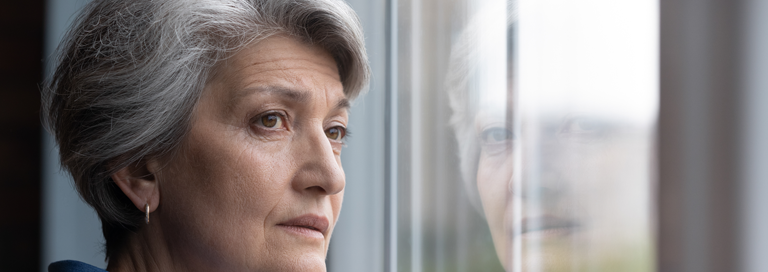A brand-new study shows that depression is dramatically increasing among Americans of both sexes. 1
It’s great news for pharmaceutical companies. Traditional doctors are quick to prescribe antidepressants for everything from “the blues” to anxiety to major depression.
And since Covid, sales have skyrocketed even higher. It’s like printing money and putting it in their pockets…
The market for antidepressants is predicted to reach $28 BILLION in the next few years. That’s a $10 billion increase in the last couple of years.1,2
But the truth is… Big Pharma’s pills don’t work. In fact, you’d be better off taking no drugs at all!
I don’t prescribe these drugs. When patients come to me with symptoms of depression, one of the first things I do is check their thyroid.
When thyroid hormones are low, depression is sure to follow. One study found low thyroid levels in more than half of people with depression.4
Other research shows patients who treated their thyroid disorder improved their symptoms of depression – even after antidepressants failed.
One study found that treating the thyroid was just as effective as standard drugs in relieving depression — without the side effects.5
Millions of Americans have been diagnosed with low thyroid function. And millions more have it and don’t even know it.
I call thyroid disorder the number-one most ignored and misdiagnosed condition in America. Because even when doctors do test for it, in most cases, your blood will test within the “normal” range. At this point, they’ll chalk up your symptoms to depression and menopause – or tell you it’s just a part of aging.
Even if your doctor does diagnose a thyroid disease, they typically prescribe a synthetic thyroid hormone called Synthroid. But it might be treating just half of your problem. In fact, studies show that more than
75% of people taking Big Pharma’s drug still have symptoms of low thyroid.6Synthroid also has side effects. Like headaches, sweating, diarrhea, hair loss, hives, weight gain or loss, mood swings, and heart palpitations.
Bring your thyroid back in balance
I recommend using natural remedies to treat thyroid disorders.
-
- Please pass the iodine. You can’t make thyroid hormones without iodine. The easiest way to get enough iodine is to season your food with iodized sea salt. You can also try eating edible marine plants, such as wakame and nori, which are high in iodine. Or you can take iodized oil capsules and supplements. I recommend getting 300 mcg of iodine daily for optimal thyroid health.
- Add in some guggul. Guggul (Commiphora mukul) is a natural extract of the sap from the Indian myrrh tree. It has powerful compounds called guggulsterones. Studies show these compounds significantly increase the amount of iodine the thyroid absorbs. Guggul is available as tablets, capsules, powders, and liquid extracts. Look for a supplement standardized to at least 6% guggulsterones. I recommend a dose of 300 mg to 400 mg of guggul two to three times a day.
- Supplement with the secret from the sea. One of the best thyroid nutrients comes from the Celtic Sea. It’s called Irish moss. But I call it an all-in-one pharmacy for your thyroid. It contains a vital thyroid hormone precursor and the thyroid hormones T3 and T4. It’s also extremely high in iodine — an important thyroid nutrient. And it’s packed with more than 90 minerals, including zinc, magnesium, manganese, potassium, and selenium — all important elements your body MUST have to ensure a balanced thyroid. I recommend taking 50 mg daily.
To Your Good Health,

Al Sears, MD, CNS
References:
1. Twenge J, et al. “Age, period, and cohort trends in mood disorder indicators and suicide-related outcomes in a nationally representative dataset, 2005–2017.” J Abnorm Psychol. 2019 Apr;128(3):185-199.
2. Antidepressant Drugs Market Size, Share, Current trends, opportunities, Competitive Analysis and Forecast to 2019 – 2025 https://www.medgadget.com/2019/08/antidepressant-drugs-market-size-share-current-trends-opportunities-competitive-analysis-and-forecast-to-2019-2025.html.
3. “Global Antidepressants Market (2020 to 2030) – COVID-19 Implications and Growth.”https://www.globenewswire.com/news-release/2020/04/21/2019282/0/en/Global-Antidepressants-Market-2020-to-2030-COVID-19-Implications-and-Growth.html
4. Sintzel F, et al. “Potentializing of tricyclics and serotoninergics by thyroid hormones in resistant depressive disorders.” Encephale. 2004 May-Jun;30(3):267-75
5. Joffe RT, et al. “A placebo-controlled comparison of lithium and triiodothyronine augmentation of tricyclic antidepressants in unipolar refractory depression.” Arch Gen Psychiatry. 1993;50(5):387-393.
6. Milner M. “Hypothyroidism: Optimizing medication with slow-release compounded thyroid replacement.” IJPC Feb/Mar 2007.

